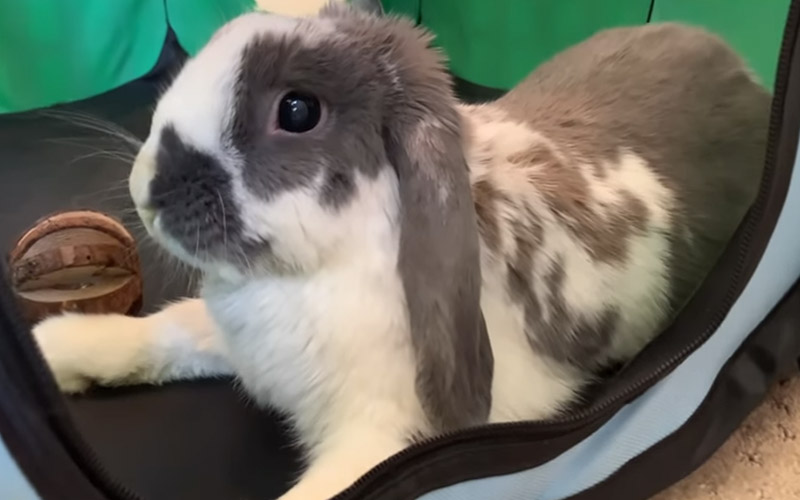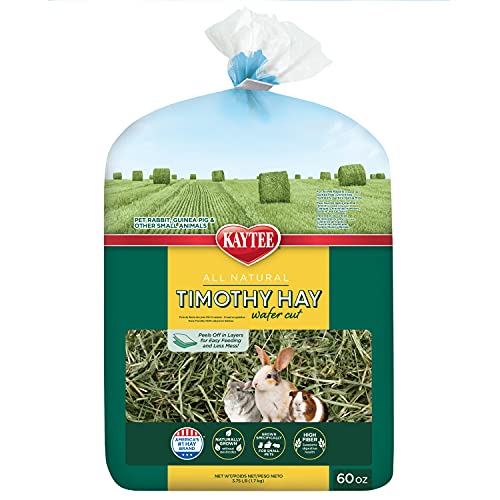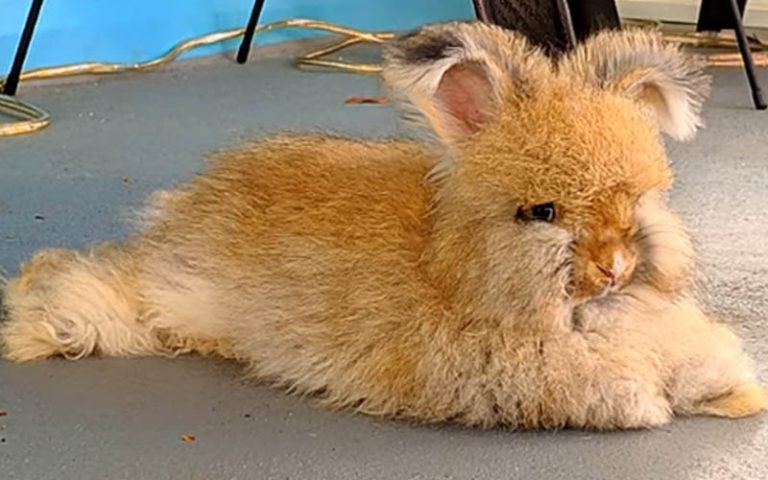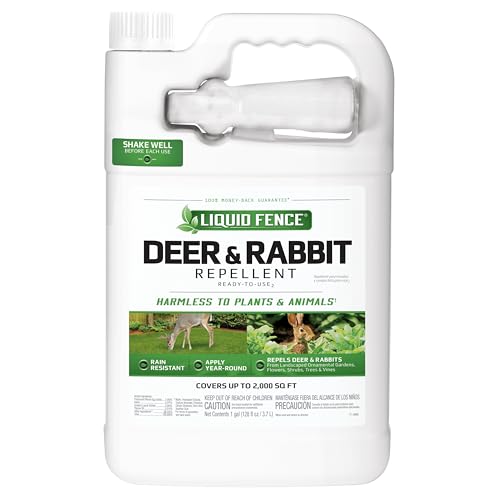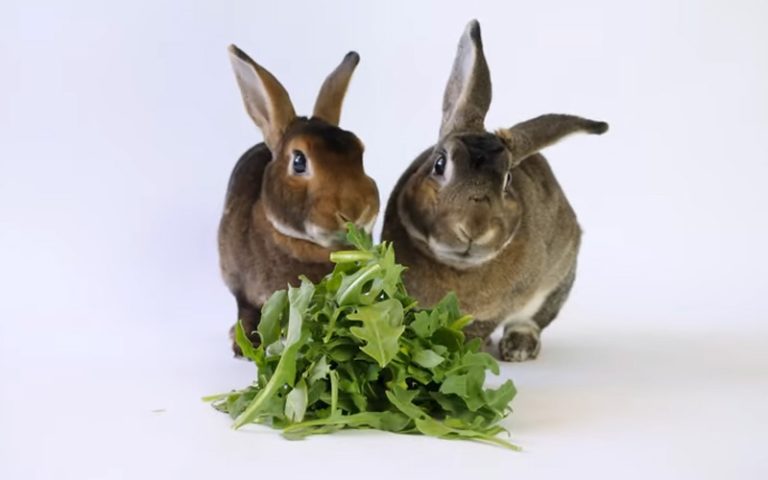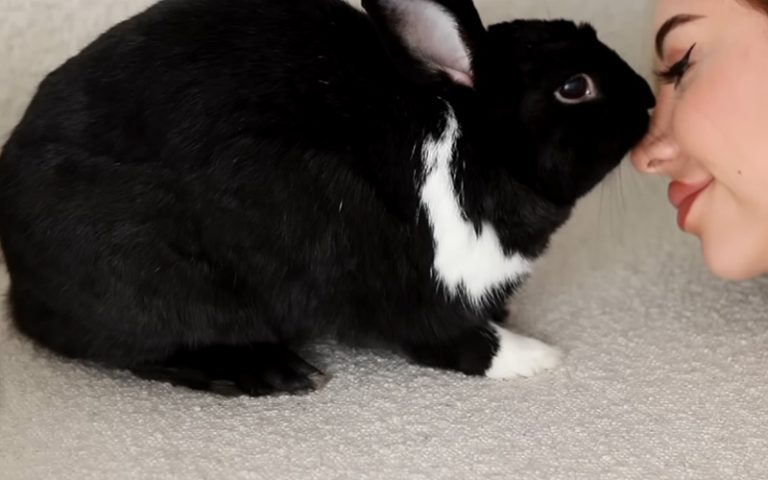Why Do Rabbits Lay In Their Poop? [The Mystery Behind]
Rabbits may sit in their droppings because they use them to mark territory or communicate. Their poop contains scent glands, and by sitting on it, they spread their unique scent. This behavior is natural and helps rabbits establish boundaries, feel secure, and communicate with others in their environment.
Rabbits drop pellets as part of their natural digestive process. These small, round droppings, often mistaken for cocoa puffs, are a blend of undigested fiber and nutrients.
Bunnies excrete this waste regularly to maintain a healthy gut. Rabbit poop is an excellent fertilizer, rich in nitrogen, phosphorus, and potassium.
Owners should scoop up these droppings for garden use, as they provide a nutrient boost for plants.
Keeping an eye on bunny poop is crucial for monitoring their health—any sudden changes may signal underlying issues.
So, while it may seem like a peculiar topic, understanding rabbit pooping habits is key to their well-being.
Have you ever wondered, “Why do rabbits lay in their poop? We analyze this question below.
Why Do Rabbits Lay in Their Poop? – 4 Mystery Behind
Ever caught your fluffy friend cozying up to their droppings and wondered, “What’s up with that?” Turns out, there’s more to this peculiar behavior than meets the eye.
Here’s a breakdown:
- Scent-national Communication: Rabbits have scent glands in their bottoms, and sitting in their poop is like sending a text message to other bunnies. It’s their way of marking territory and shouting, “This is mine!”
- Cleanliness Quandary: Rabbits are generally tidy, but their territorial instincts sometimes trump their neatness. A clean space is vital for their well-being, but when they’re feeling a bit possessive, hygiene takes a back seat.
- Diet Drama: Believe it or not, a bunny’s bathroom habits can be linked to its diet. If your furball is munching on the wrong stuff, it might end up sitting in its poop. A balanced diet is the key to keeping things tidy.
- Stress Showdown: Rabbits get stressed too. Changes in the environment, loud noises, or new buddies can make them a bit jittery. When stress hits, sitting in their poop becomes a coping mechanism. Imagine it like a stress ball for rabbits!
Why Is Your Rabbit Pooping Everywhere?
Is your once well-behaved rabbit leaving surprise pellets all over the place? Don’t panic! There are several reasons why your furry friend might be scattering their droppings.
Perception of the root cause is the first step to restoring order in your rabbit’s bathroom habits.
1. Territorial Marking
Rabbits, like many animals, have an instinct to mark their territory, and this includes scattering their droppings.
In the wild, this behavior helps them establish boundaries and communicate with other rabbits. Your domesticated bunny may exhibit this instinct, especially if it feels the need to claim its space.
So, if you find scattered poop around, it’s likely just your rabbit’s way of saying, “This is mine!” Creating a designated and clean living space can help manage this territorial marking behavior.
2. Stress and Anxiety
Just like humans, rabbits experience stress and anxiety, and it can manifest in their behavior, including bathroom habits.
Loud noises, changes in the environment, or the introduction of new pets can stress out your furry friend. Rabbits may spread their droppings to indicate anxiety when under stress.
Providing a calm and predictable environment, along with gentle interactions, can help alleviate stress in your rabbit. That promotes better overall well-being and more consistent bathroom habits.
3. Dietary Issues
Your rabbit’s diet plays a crucial role in their bathroom behavior. If you notice scattered droppings, it could signal dietary issues.
An unbalanced or inadequate diet can lead to irregular bowel movements, causing your furry friend to leave surprises around.
Ensure your rabbit’s menu is rich in high-quality hay, fresh veggies, and pellets. A balanced diet not only promotes overall health but also contributes to consistent and well-formed droppings.
4. Lack of Litter Training
If your bunny is leaving surprises all around, it might be due to a simple lack of litter training. Inactive training can result in your rabbit not grasping where to do their business.
Fortunately, with consistent positive reinforcement and a bit of patience, you can guide your furry friend towards proper litter box habits.
- Health Concerns: If you notice your rabbit’s poop appearing abnormal or inconsistent, it might be signaling an underlying health concern. Keep an eye out for these red flags:
- Diarrhea: Runny or excessively soft droppings can indicate digestive issues.
- Inactivity: A sudden lack of energy or reduced activity level may point to health problems.
- Changes in Appetite: Loss of appetite or refusal to eat can be indicative of underlying health concerns.
How Can I Prevent My Rabbit from Sitting in Its Poop?
Keeping your rabbit from turning its living space into a personal poop seat involves simple yet effective strategies. By actively engaging in these practices, you ensure a clean and comfortable environment for your furry friend:
- Regular Cage Cleaning: Make it a habit to clean your rabbit’s cage or living area regularly. Remove soiled bedding promptly to discourage poop-sitting.
- Spacious Dwellings: Provide ample space for your rabbit to move around. A spacious environment reduces the likelihood of your rabbit sitting in its own waste.
- Balanced Diet: Feed your rabbit a well-balanced diet rich in hay, vegetables, and pellets. A healthy diet contributes to regular and firm bowel movements, reducing the temptation to sit in feces.
- Stress-Free Atmosphere: Rabbits are sensitive to stress. Keep their living area calm and minimize sudden changes. A stress-free environment reduces the chances of undesirable behaviors like poop-sitting.
- Toilet Training: Consider litter training your rabbit. Provide a litter box with appropriate bedding, encouraging your rabbit to use it for bathroom activities instead of sitting in its poop.
How Can I Train My Rabbit To Stop Sitting In Its Poop?
Training your rabbit to break the habit of sitting in its poop is a rewarding process that requires patience and positive reinforcement.
Follow these 6 (six) simple steps to encourage cleaner bathroom habits in your furry friend:
Step 1. Clean Regularly
Keep your rabbit’s living space spotless by cleaning regularly. Remove soiled bedding and feces to maintain a fresh and hygienic environment.
A clean living space not only discourages your rabbit from sitting in its poop but also promotes a healthy and happy atmosphere for your furry friend.
Regular cleaning is a simple yet effective way to ensure your rabbit’s well-being and minimize unwanted behaviors.
Step 2. Provide a Litter Box
Set up a designated litter box to encourage proper bathroom habits in your rabbit. Choose a box that’s easily accessible, placing it in a quiet and comfortable area.
Opt for a bunny-friendly litter material, like paper-based or hay-based options, which is gentle on your rabbit’s paws.
Regularly clean the litter box to maintain a fresh environment, enticing your rabbit to consistently use the designated space for its bathroom needs.
This simple addition to your rabbit’s living space promotes cleanliness and reinforces positive behavior.
Step 3. Use Bunny-Friendly Litter
Choose a bunny-friendly litter to make your rabbit’s bathroom experience comfortable. Opt for litter made from paper or hay, as it’s gentle on your rabbit’s delicate paws.
This type of litter is not only soft and cozy but also encourages natural instincts. Make your furry friend’s bathroom routine a pleasant one with a litter that keeps them happy and your living space clean.
Step 4. Positive Reinforcement
Positive reinforcement is a powerful tool when training your rabbit. This technique involves rewarding good behavior to encourage its repetition. Give your rabbit snacks and polite praise when he or she uses the litter box appropriately.
This positive feedback helps your furry friend associate the desired behavior with positive outcomes. It makes them more likely to continue using the designated bathroom area.
Consistent and loving positive reinforcement fosters a trusting and cooperative relationship between you and your rabbit.
Step 5. Consistency is Key
Consistency plays a crucial role in teaching your rabbit good bathroom habits. By sticking to a regular routine and reinforcing positive behavior, you help your furry friend realize where to do its business.
A consistent approach, combined with patience and positive reinforcement, ensures that your rabbit associates the correct behavior with a positive experience, making the training process effective and rewarding.
Step 6. Be Patient and Gentle
It is critical to practice patience and gentleness when training your rabbit. Use a calm and feeling approach, avoiding harsh actions or scolding.
Encourage positive behavior with gentle praises and treats, reinforcing good habits. Building trust takes time, so be patient as your furry friend learns, and celebrate their progress along the way.
FAQ
Sitting in poop can signal a health problem in rabbits. It’s not normal behavior. If your rabbit is consistently sitting in its feces, it could indicate issues like digestive problems, improper diet, or obesity. It’s crucial to observe and address such behavior promptly to ensure your rabbit’s well-being.
Rabbits instinctively recognize their special droppings, called cecotropes, by their unique smell and texture. These droppings contain essential nutrients like vitamins and proteins. The rabbits actively seek out and consume these specific poops to maximize nutrient absorption and maintain a healthy digestive system.
Urine does not attract rabbits. Rabbits rely on their keen sense of smell to detect potential threats or food sources, but human urine is not a strong attractant for them. It is unlikely to have any significant impact on rabbit behavior or attract them in any way.
Rabbits typically drop around 200 to 300 pellets a day. These small, round droppings, often mistaken for cocoa puffs, are a crucial part of their digestive process. Rabbits are prolific poopers, ensuring efficient nutrient absorption from their food. So, expect your fluffy friend to leave a trail of 2-3 hundred pellets daily!

